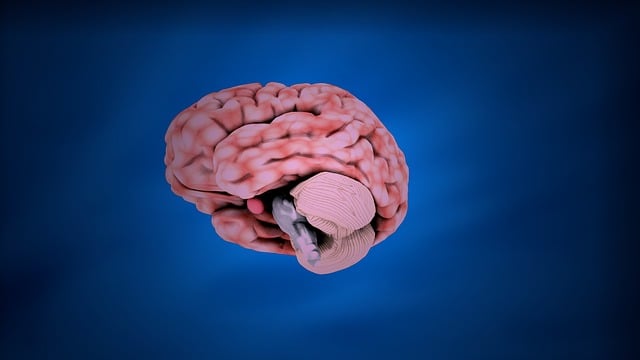Oppositional Defiance Disorder (ODD) is a behavioral condition characterized by anger, irritability, arguments with authority, and defiant attitudes, impacting daily life and relationships. Early intervention through therapy, like cognitive-behavioral therapy (CBT), effectively targets negative thought patterns. A holistic approach includes risk assessment, cultural competency training for healthcare providers, harm minimization strategies, burnout prevention, and mental health education to manage ODD symptoms and underlying causes, promoting long-term well-being. Integrated therapy sessions focusing on behavior and cognition, along with stress reduction techniques, empower individuals with ODD to develop self-awareness, build resilience, and navigate social interactions positively.
Risk assessment and harm minimization planning are crucial components in managing Oppositional Defiant Disorder (ODD). This comprehensive guide explores key strategies for therapists addressing ODD, focusing on symptom recognition and impact. We delve into the role of risk assessment as a foundation for effective management, and provide a step-by-step approach to developing tailored harm minimization plans. By implementing evidence-based intervention and support strategies, therapists can foster positive outcomes for individuals struggling with ODD, enhancing their quality of life. Discover expert insights on navigating this complex disorder through therapy.
- Understanding Oppositional Defiance Disorder (ODD): Symptoms and Impact
- The Role of Risk Assessment in ODD Management
- Developing a Comprehensive Harm Minimization Plan
- Implementing Strategies for Effective Intervention and Support
Understanding Oppositional Defiance Disorder (ODD): Symptoms and Impact

Oppositional Defiance Disorder (ODD) is a behavioral condition characterized by a persistent pattern of angry and irritable behavior, frequent arguments with authority figures, and defiant attitudes. Those affected often display strong feelings of resentment, have difficulty following rules, and may intentionally annoy or upset others. The symptoms can significantly impact daily functioning, affecting relationships at home and school, and potentially leading to more severe behavioral issues over time.
Understanding ODD is crucial for implementing effective harm minimization strategies. Early intervention using therapy for Oppositional Defiance Disorder, such as cognitive-behavioral therapy (CBT), has shown promise in improving symptoms. CBT helps individuals identify and change negative thought patterns and behaviors, teaching them healthier conflict resolution techniques and emotional regulation skills. Additionally, healthcare provider cultural competency training and crisis intervention guidance can support professionals in offering tailored care, ensuring a holistic approach to managing ODD and its underlying causes.
The Role of Risk Assessment in ODD Management

Risk assessment plays a pivotal role in managing Oppositional Defiance Disorder (ODD). It involves a thorough examination of an individual’s behaviors, triggers, and underlying factors contributing to their defiant attitudes and actions. By systematically identifying potential risks and hazards, healthcare providers can develop targeted interventions tailored to each patient’s unique needs. This proactive approach is instrumental in preventing escalation and promoting positive outcomes in therapy for Oppositional Defiance Disorder.
A comprehensive risk assessment equips professionals with valuable insights into a patient’s emotional intelligence, helping them understand the root causes of ODD. Additionally, it facilitates the implementation of harm minimization strategies that go beyond treating symptoms. Healthcare providers can incorporate techniques such as burnout prevention and cultural competency training to address broader systemic issues. This holistic perspective ensures that patients receive not just short-term relief but also long-lasting coping skills, fostering resilience and improving overall well-being.
Developing a Comprehensive Harm Minimization Plan

Developing a comprehensive harm minimization plan involves identifying potential risks and implementing strategies to mitigate their impact. For individuals struggling with Oppositional Defiance Disorder (ODD), this process is crucial in fostering better mental health outcomes. By integrating Self-Care Routine Development for Better Mental Health, therapists can empower clients to proactively manage symptoms and reduce the risk of harmful behaviors.
Mental Health Awareness and Education Programs Design play a pivotal role in creating supportive environments where individuals with ODD can learn coping mechanisms and build resilience. Through structured planning, these interventions not only address immediate concerns but also contribute to long-term mental well-being, ensuring a more balanced and positive lifestyle.
Implementing Strategies for Effective Intervention and Support

Implementing effective intervention strategies is key to supporting individuals with Oppositional Defiance Disorder (ODD). One crucial approach involves integrating therapy sessions that focus on both behavioral and cognitive aspects. Through structured conversations, therapists can help clients develop self-awareness exercises tailored to their unique challenges. By identifying triggers and learning healthier coping mechanisms, individuals gain better control over their reactions.
Additionally, incorporating stress reduction methods into the treatment plan proves beneficial. Techniques such as mindfulness meditation and progressive muscle relaxation enable clients to manage anxiety levels and reduce impulsive behaviors. As self-confidence grows through successful coping strategies, individuals with ODD can navigate social interactions more effectively, fostering positive relationships and minimizing potential harm.
In conclusion, managing Oppositional Defiance Disorder (ODD) requires a multi-faceted approach. By understanding the symptoms and impact of ODD, utilizing risk assessment techniques, developing harm minimization plans, and implementing effective intervention strategies, professionals can significantly improve outcomes for individuals affected by this disorder. Incorporating evidence-based therapy for ODD is crucial in fostering positive behavior changes and enhancing overall well-being.








